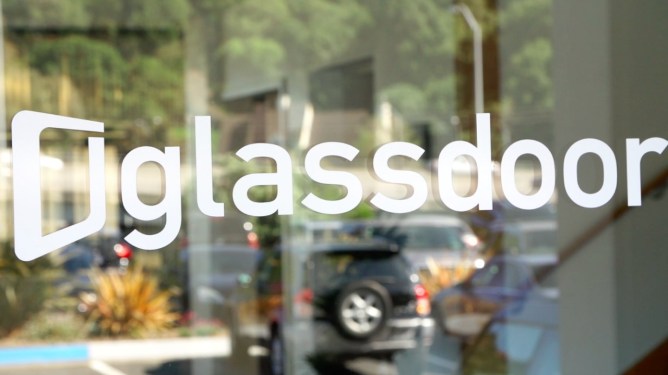Introduction
Glassdoor, a platform popular among job seekers for anonymous reviews about companies, has come under scrutiny after reports surfaced this week. Users are accusing the company of collecting personal data without consent, including names, email addresses, and other identifying information.
Monica’s Story: A User Takes Control
Monica, an employee at a tech startup, shared her harrowing experience with Glassdoor. After submitting an email about her job experience, she discovered that her name had been added to the company profile. Despite玻璃公司’s claims of anonymity, Monica felt violated and took drastic measures by deleting her account.
Monica’s Email Exchange
The incident began when Monica wrote an anonymous review for her former employer. Glassdoor responded with a generic email stating they couldn’t verify the authenticity of the content. However, after submitting the email address associated with the account, glass公司 demanded personal details, including her name and contact information.
Glassdoor’s Response: A Denial of Privacy
Glassdoor disputes Monica’s claims, asserting that user names are not part of their data collection process unless users choose to share them. The company emphasizes its commitment to anonymous reviews and provides users with the option to post without revealing personal details.
Data Collection Concerns
Despite玻璃公司’s assurances, Monica argues that glass公司 has access to her email addresses and other information. This raises significant privacy concerns, as such data could be used for identification or other malicious purposes.
User Reactions: A Show of Resistance
Monica’s decision to delete her account highlights a growing trend of users taking control of their personal information online. Many are now seeking platforms that prioritize user anonymity and reject any demands for personal details.
Calls for Transparency
The incident has sparked calls for greater transparency from glass公司, including detailed reports on how it handles data requests. Currently, glass公司 only provides a generic boilerplate response without specific figures or names.
Legal Perspective: EDOV’s Role
EDOV, a cybersecurity firm specializing in protecting user privacy, has weighed in on the issue. Glassdoor is under scrutiny for potentially violating data protection laws by collecting sensitive information without users’ consent.
Data Breach Risks
Glassdoor faces amplified risks of data breaches and legal demands if it continues to collect such personal information. The company’s current approach could leave users vulnerable to intimidation or other repercussions.
Data Collection Challenges
Monica and others are now considering the broader implications of glass公司’s data collection practices. They question whether similar demands will arise for other types of user interactions, potentially leading to a slippery slope of privacy violations.
Glassdoor’s Future: A Possible Moratorium
Glassdoor is currently evaluating whether to impose stricter policies on users regarding data collection and ensure compliance with privacy regulations. The company has yet to respond officially to Monica’s concerns but acknowledges the growing pressure from users.
Conclusion: Balancing Anonymity and Security
The Monica case serves as a wake-up call for glass公司 about the importance of user trust in online platforms. Striking a balance between anonymity and security remains a complex challenge, but it is essential for companies to prioritize user privacy in an era where data breaches are increasingly common.
Glassdoor has the potential to set a precedent for responsible data practices if they address these concerns proactively. Meanwhile, users like Monica continue to assert their rights by taking control of their personal information online.
